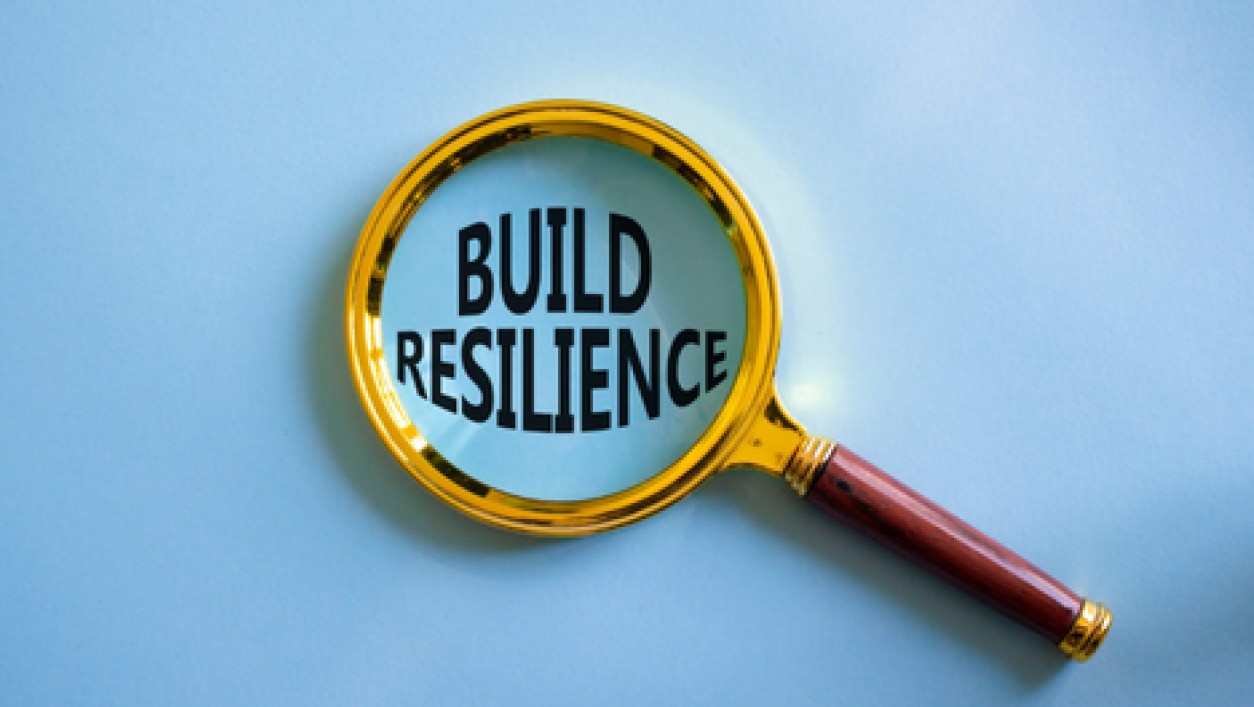Building a successful, purpose-driven culture is at the heart of a Corporate Affairs leader’s role. Navigating complex reputational challenges and fostering alignment across diverse stakeholders demands courage, connection and resilience. We explore insights from Brené Brown, the renowned researcher and author on vulnerability and leadership, offering valuable lessons for CA leaders to foster authenticity, inspire purpose, and build a thriving culture.
Brené Brown’s list of achievements is long and illustrious. With an academic background in social work, she is a research professor at the University of Houston and a visiting professor in management at the University of Texas. She has written six number-one New York Times bestsellers, hosts two podcasts and has starred in documentaries of her work on Netflix and HBO. Her 2010 TEDx talk, “The Power of Vulnerability” became one of the most-viewed TED talks ever and launched her into the spotlight as “a new star of social psychology.”
Her 2018 book “Dare to Lead” was written in her trademark “no-BS” style and aimed to answer the question: “How do you cultivate braver, more daring leaders, and how do you embed the value of courage in your culture?” It achieved significant acclaim and is now also a training program for business leaders delivered by certified trainers worldwide. Here are five teachings from her work you can apply to your career in Corporate Affairs.
1. Get vulnerable
Viewed over 67m times, Brené Brown’s 20-minute TEDx talk on vulnerability not only accelerated the development of her media empire, it re-positioned vulnerability as a strength. Leaning on data and powerful personal storytelling, she shares her realisation that “vulnerability is the core of shame and fear and our struggle for worthiness, but it appears that it’s also the birthplace of joy, of creativity, of belonging, of love.” Brené highlights how openness and vulnerability foster trust and meaning.
Brené Brown’s “The Power of Vulnerability” TEDx talk
CA leaders can model vulnerability by sharing personal anecdotes and being honest and transparent about challenges, creating a culture of authenticity that can align teams with a shared purpose. Approaching a difficult conversation or a piece of communication from a place of vulnerability demonstrates your commitment and courage and can lead to a more open and trusting culture. “Daring leaders work to make sure people can be themselves and feel a sense of belonging,” says Brené in Dare to Lead. “Vulnerability is not about winning or losing; it’s about the courage to show up even when you can’t control the outcome.”
2. Tell stories
Building on the foundation of vulnerability, storytelling offers another powerful tool to inspire and engage. Being a great storyteller is a core skill for a professional communicator and character-driven narratives are more likely to motivate humans because they trigger the release of oxytocin, enhancing engagement and empathy.
Brené’s storytelling skills span her books, talks and podcasts and have earned her a huge social media following. Storytelling can also be applied on a smaller scale though. When it comes to showing vulnerability, telling a personal story – even if it feels uncomfortable – can help you build connections.

After all, the word “courage” actually has its root in telling an authentic personal story, says Brené: “…it’s from the Latin word ‘cor’ meaning ‘heart’ – and the original definition was to tell the story of who you are with your whole heart.”
Wholehearted storytelling can be applied effectively at the companywide level too. How can you make your customers or employees the hero of the story? How can you create effective tension and resolution? Brené has described her research process as “storycatching” and her stories as “data with a soul.” Following her narrative-driven approach can help bring an extra level of engagement and humanity to your communications, particularly around social impact initiatives.
3. Embrace discomfort
Getting comfortable with feeling uncomfortable is the only way to cultivate a culture of courage and to grow personally and professionally, says Brené. All too often we choose comfort over courage and that stops us from trying something new. “We get to a place as adults where we stop doing things we’re not already good at,” she says, but it is in those difficult “first times” that we will really experience growth.
As a leader, you may find yourself covering familiar territory or reverting to tried-and-tested tactics. Are there areas you could take on that would push you outside of your comfort zone and expand your sphere of influence? Do you or your organisation shy away from difficult or controversial topics? Sustainability is one example of a responsibility that could be a career catalyst for CA leaders, but some hesitate to take it on as they feel they lack the relevant knowledge and skills. Visibly taking on new challenges and role modelling that behaviour can also encourage your peers and team members to act bravely when faced with the choice between courage and comfort.
Brené Brown’s “Listening to shame” TEDx talk
Fear of criticism or failure can stop us from taking that first step, but being willing to embrace discomfort – what Brené describes as “emotional risk, exposure and uncertainty” – can unlock creativity, innovation and growth. Change comes with a different perspective, says Brené. If you start to see mistakes and failures not as a source of shame, but as an important part of learning and growing, it can quiet your inner critic and increase your sense of courage.
4. Build resilience to bounce back
In Rising Strong, published in 2015, Brené underscores the importance of learning from failure and coming back stronger. If you decide to “put yourself out there” more, be more vulnerable and take risks that can bring opportunity, sometimes those risks won’t turn out how you want them to. That’s where resilience comes in. “The truth is that falling hurts,” says Brené. “The dare is to keep being brave and feel your way back up.”
For CA leaders, normalising failure and demonstrating the ability to reset and carry on after a setback can help to create a resilient, empowered culture. Innovation and growth will only be hampered by a culture where employees are risk-averse and feel they will be criticised or penalised if they fail. The combination of a larger remit, fewer resources and increased confidence from their CEO in the CA means many find themselves stretched. Empowering employees to take measured risks and make front-line decisions without being stifled by fear of failure or the inability to bounce back after failure is one way to avoid burnout.
One China-based CA leader summed this up at an Andrews Partnership roundtable: “Empower your people to make decisions, even if those decisions aren’t right the first time. Adopting a less risk-averse mindset can build resilient, well-equipped teams who feel trusted to do the right thing.”

Next time there is a misstep from you or someone in your team – a media pitch that fails to land, a press release that’s poorly received, a presentation that receives more criticism than praise – take inspiration from Brené to see mistakes as opportunities for growth and refinement and focus on the plan for bouncing back.
5. Prioritise empathy to build connections
To successfully align and coordinate internal and external messages across an organisation behind consistent narratives requires a CA leader to act as the “glue” across a leadership team. This needs a level of trust, influence, collaboration and ultimately, connection. Brené points to empathy as the number one way to build meaningful connections. She differentiates between empathy and sympathy and points out that listening and showing understanding can build deep connections. “Empathy is feeling with people,” she says. “It’s a sacred space where someone’s in a deep hole, and you’re not trying to fix it; you’re just climbing down to say, ‘I know what it’s like down here, and you’re not alone.’”
Animated RSA Short: Brené Brown on empathy
CA leaders should demonstrate empathy to build connections with key peers and stakeholders and also encourage empathetic leadership across teams, ensuring everyone feels valued and aligned with the organisation’s purpose. A strong working relationship is important but a relationship built on mutual trust and empathy is invaluable. “Connection is why we’re here,” says Brené. “It is what gives purpose and meaning to our lives.”
Becoming a badass
Brené’s insights offer a powerful framework for CA leaders to create more authentic, courageous and resilient cultures. By embracing vulnerability, storytelling, discomfort and empathy, leaders can inspire their teams to thrive and build stronger connections. This approach not only enhances company culture, but will also lead to more fulfilling and meaningful work for CA leaders themselves. As Brené aptly puts it in her trademark style: “People who wade into discomfort and vulnerability and tell the truth about their stories are the real badasses in this world.”





